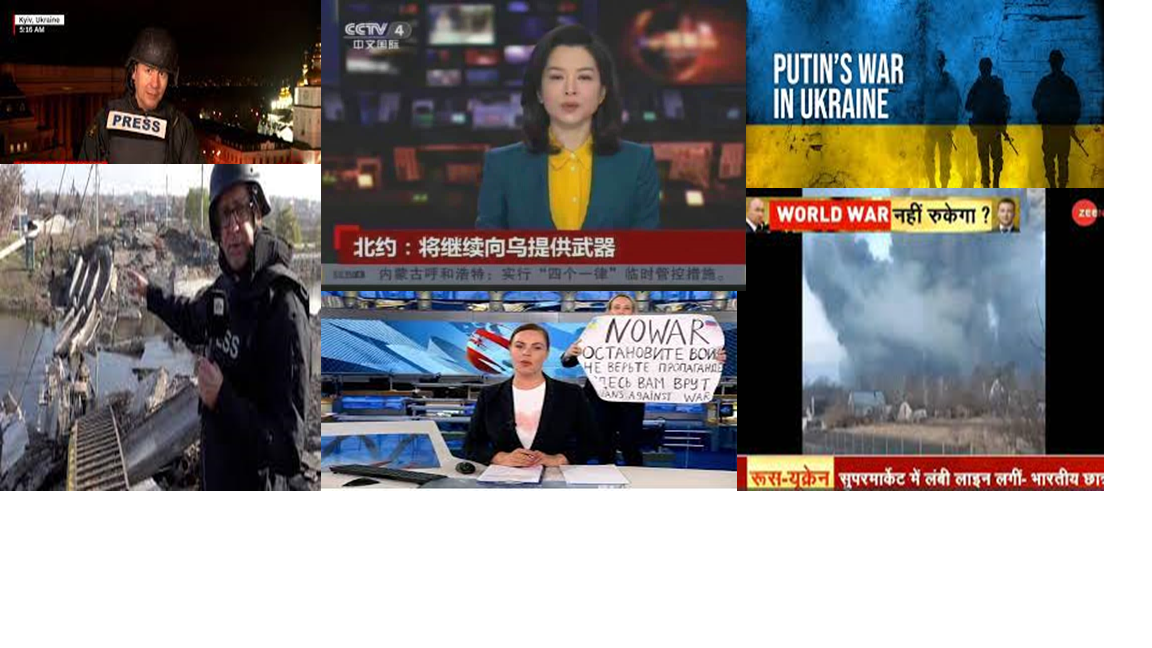The article, published in the prestigious academic journal International Journal of Communication, is an abbreviated round-up of the Finnish-language research report published this March.
The article focuses on the coverage of the war in nine countries’ flagship TV news bulletins over a two-month period since the beginning of the war on February 24, 2022.
The countries and outlets investigated were Brazil (Jornal Nacional), China (CCTV News), Finland (YLE News), India (The News), Italy (TG1), Russia (Vremya), South Africa (SABC News Channel), the UK (BBC News), and the USA (ABC, CBS, and NBC for broadcast networks, and CNN and FOX for cable networks).
Apart from giving an overall picture of the bulletins’ coverage, researchers investigate story topics, angles, and narratives. They notice “a significant difference in the structure and quality of coverage of the war – in general and between Western countries and BRICS countries in particular.”
Russian coverage focused exclusively on war while the other BRICS countries had a different take. Peace journalism was the most dominant topic in Chinese reporting. It also featured rather frequently in Brazil, India, and South Africa, which were trying to strike a balance between a focus on war and peace. Western coverage was more oriented towards war.
Propaganda was most clearly visible in Russian coverage, but the researchers note that all other countries studied could also be seen to follow the propaganda model of news by Herman and Chomsky (1988) in different ways.
According to the research team, the findings open up plenty of interesting avenues for future studies, such as questions of propaganda and systematic monitoring of media performance around the world.
You can read the article here.
TaRC congratulates Kaarle and Sveta on the publication of this timely article!

